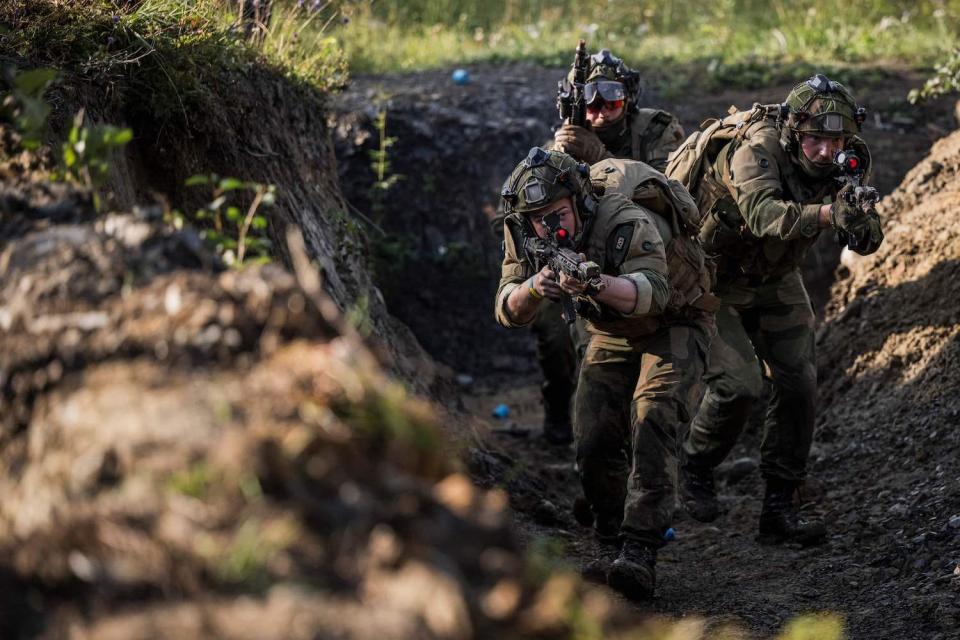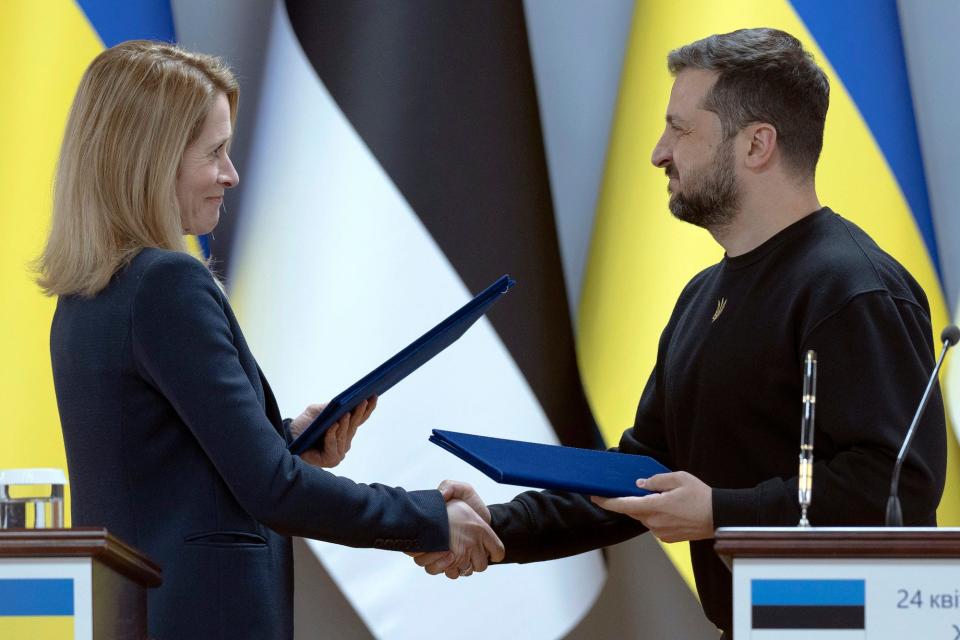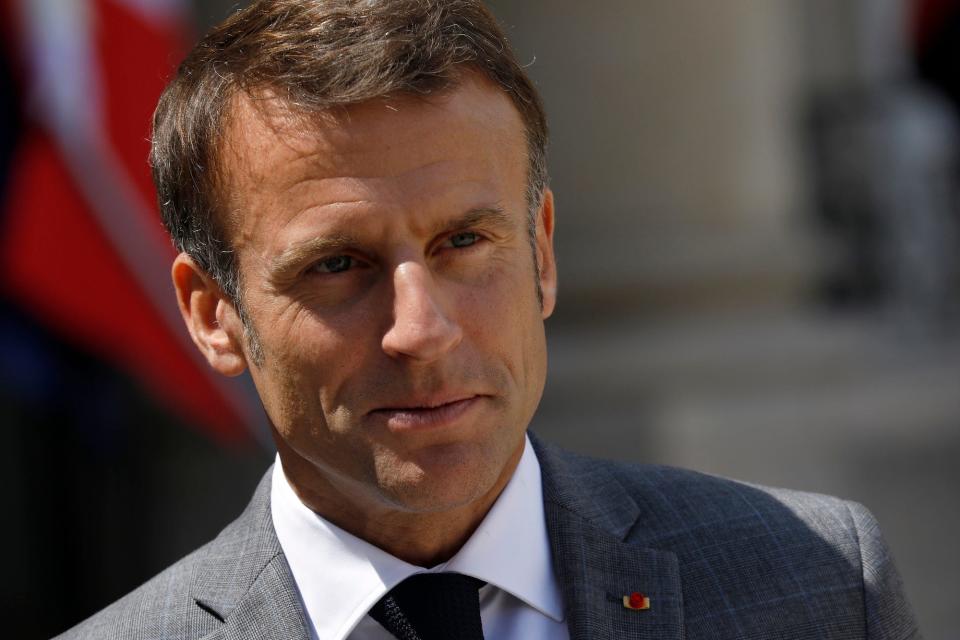A few NATO countries are lobbying the rest to be bolder when it comes to sending their own soldiers to Ukraine

- Oops!Something went wrong.Please try again later.
Some European NATO members are talking about putting their troops in Ukraine.
Estonia's PM said allies shouldn't fear that troops doing training there would escalate the war.
Some want their allies to consider similar action, saying Russia is a threat to Europe.
Some NATO countries are encouraging their allies to be bolder when it comes to sending their own soldiers to Ukraine.
Many NATO countries have aided Ukraine since Russia launched its full-scale invasion in February 2022, by providing weaponry and training of troops.
However, some say that Ukraine's allies should consider more direct action to stop Russia, including by putting their own troops on the ground.
Estonia wants more action
The most recent comments came from Kaja Kallas, prime minister of NATO member Estonia. She told the Financial Times that NATO members should not be concerned that sending troops to Ukraine to train soldiers would risk a wider war with Russia.
Allies that train Ukrainian troops are doing so outside Ukraine. However, some Western and Ukrainian officials believe that training Ukrainian soldiers on their own territory would be more efficient, the FT reported.

Kallas said: "There are countries who are training soldiers on the ground already," and said they were doing it at their own risk.
Poland's foreign minister in March called it an "open secret" that some Western soldiers are already in Ukraine.
Kallas said that even if NATO soldiers were attacked by Russia while in Ukraine, it wouldn't automatically trigger Article 5, NATO's collective defense clause.
According to the clause, an attack against one NATO member is an attack against all.
"I can't possibly imagine that if somebody is hurt there, then those who have sent their people will say 'it's article five. Let's . . . bomb Russia.' It is not how it works. It's not automatic. So these fears are not well-founded," she said.
She added: "If you send your people to help Ukrainians . . . you know the country is in war and you go to a risk zone. So you take the risk."
Estonia, while a small country, is one of Ukraine's key allies and has been one of the biggest advocates for Ukraine receiving as much support as possible. It has repeatedly warned that Russia is likely to attack elsewhere in Europe after Ukraine.

Kallas' comments come after other officials in Estonia suggested their soldiers could be sent to Ukraine.
Madis Roll, the country's president's national security advisor, said earlier this month that the government is "seriously" discussing the potential of deploying Estonian troops to Ukraine in non-combat roles.
France says Western troops may be needed
French President Emmanuel Macron said earlier this month that Europe should consider sending troops to help Ukraine if Russia breaks through its lines, as "if Russia wins in Ukraine, there will be no security in Europe."
Macron repeatedly said that he could consider putting Western troops in Ukraine.
He said he would consider doing it "if the Russians were to break through the front lines, if there were a Ukrainian request, which is not the case today."
He added: "We have undoubtedly been too hesitant by defining the limits of our action to someone who no longer has any and who is the aggressor."
Macron, like Estonia, warned that Russia would likely look to attack elsewhere in Europe if it is not defeated in Ukraine.

In response to Macron, the Kremlin said putting NATO troops in Ukraine would lead to a war between it and Russia.
And other allies, including the UK and the US, said they were not considering such a move.
But a frequently repeated pattern in this war has been how some of its allies have rejected the possibility of taking some steps to support Ukraine, before changing their minds later.
Other countries are considering sending soldiers as trainers
Poland's foreign minister said in March that the presence of NATO forces in Ukraine "is not unthinkable" and said he appreciated Macron for not ruling out the idea.
Lithuanian Prime Minister Ingrida Šimonytė told the FT this month that she had the authority from her parliament to send troops to Ukraine for training, but Ukraine had not yet requested any.
She said Russia may consider responding, but "if we just thought about the Russian response, then we could not send anything. Every second week you hear that somebody will be nuked."
Read the original article on Business Insider

